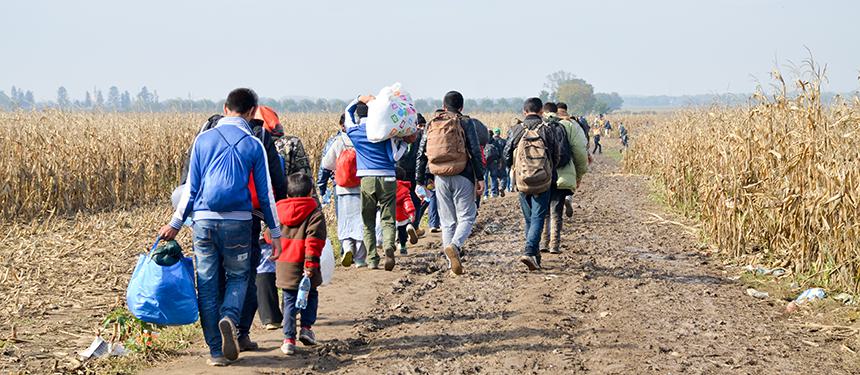World Refugee Day: Supporting NGOs

World Refugee Day, celebrated on 20th June, is dedicated to people who have been forced to flee their home country to escape conflict or persecution.
World Refugee Day 2022 took on an even greater significance this year as it comes amid the brutal war in Ukraine. According to the United Nations High Commissioner for Refugees (UNHCR), Russia’s invasion of Ukraine has pushed global displacement figures to record levels. More than five million Ukrainian refugees have been registered across Europe since the conflict began in February. One third of Ukraine’s population has been internally or internationally displaced.
The sombre truth is that more than one percent of the current global population has been forced to flee their homes. Displacement can occur for many reasons, including violence, war, natural disasters and climate change. The number of global refugees has risen by 10.7 million since 2021. This staggering increase can be largely attributed to the war in Ukraine, as well as humanitarian crises in Ethiopia, Afghanistan, Myanmar, Yemen and the Democratic Republic of Congo.
It is important to note that this total does not include the number of internally displaced peoples (IDP). IDP are those who are forced to flee their homes, but remain within their own country. Internal displacement is often caused by the rising number of extreme weather events, including heat waves, droughts, floods, typhoons and hurricanes.
How to keep NGO staff, volunteers and other aid workers safe in high-risk security environments
Effective relief for those who have been displaced is entirely dependent on the safety and wellbeing of the people that deliver it. World Refugee Day is an important opportunity to acknowledge the efforts of the non-governmental organisations (NGOs) and their employees that work tirelessly to assist refugees and IDPs worldwide.
Aid workers face significant security risks due to their direct exposure to violence, conflict and unrest. In addition, these workers are commonly targeted as political hostages or bargaining chips. In May of this year, the Russian military unlawfully detained two UK aid workers who were providing humanitarian assistance in Ukraine. These types of arrests represent a direct breach of humanitarian law. A concerning trend can be seen, evident in the increasing number of attacks against aid workers worldwide.
Some notable incidents seen in the last 12 months…
- Three members of the UNHCR were wounded in an attack against a convoy in the eastern Democratic Republic of Congo in December 2021.
- Islamic State militants killed an aid worker employed by the Kurdish Red Crescent in the Al-Hol refugee camp in Syria, which underscores the extreme security risks humanitarian and medical organisations face in that area.
- Two humanitarian workers were killed in separate events in February. Aid convoys, warehouses and medical teams are regularly targeted.
- In March, the Norwegian Refugee Council (NRC) raised concerns about the rising number of lootings and attacks on aid workers in South Sudan as the country's hunger and unrest crisis continues to deteriorate.
NGOs generally have a higher risk tolerance than multi-national corporations and governments. While securing acceptance in the field is undoubtedly one of the most important forms of protection, there are a number of other risk mitigation and crisis management measures available to help NGOs fulfil their duty of care towards their field staff and volunteers, and ensure donor confidence.
Healix encourage the use of explicit NGO security management strategies. We can assist by providing ground support and protective services, building evacuation plans and travel policies, conducting security audits and coordinating journey management plans. Additional services include the Healix Sentinel Risk Management Platform and Healix Travel Oracle app, which allow NGOs to boost their preparedness and resilience while simultaneously enhancing their operational capabilities in high-risk security environments.


